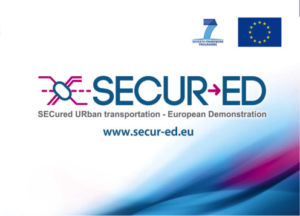
The PRO-RES Project aims at PROmoting integrity in the use of RESearch results (2018-2021)
http://www.prores-project.eu
This is a €2.8 million project with 14 European scientific institutions aiming to build an ethics/integrity framework for all non-medical research Effective policymaking, built upon sound research, produces outcomes that benefit society, communities, groups and individuals. If research is flawed by lacking integrity and by being conducted unethically it is of no use to policymakers.
The PRO-RES project aims at building a research ethics and integrity framework devised cooperatively with the full range of stakeholders. Fraud or corrupt practices by researchers can lead to serious damage to society and the physical environment. Reliable and transparent research, divorced from political ideology and undeclared vested interests, produces robust evidence that benefits social wellbeing and societal progress.
“This funding Call targets the very people we need to reach to ensure that pleas for integrity in science and research are more than mere tokens. Ethical values, principles and standards need to be part of the ‘culture’ of research and science policy must recognise that need and the most effective way to support it.” says Dr. Ron Iphofen, initiator of the PRO-RES idea.
PRO-RES builds upon the previous work of the Academy of Social Sciences’ working group on research ethics with which Fellows Robert Dingwall, Helen Kara, Ron Iphofen, and John Oates were all involved. All have worked for years addressing the nature of research governance and ethical review, encouraging fair and independent monitoring of research integrity and ensuring better understanding of the ethics of diverse and innovative research methods. The Academy team also includes Overseas Fellows from Australia: Mark Israel, Gary Allen and Colin Thomson, who have equal expertise in offering advice and guidance on ethics and integrity in research. Together the team strengthens the role of the Academy as a consortium partner in a project that will help ensure that research is conducted ethically from design to dissemination.

The aim was to improve urban transport security in medium to large-sized cities. SECUR-ED integrated a mix of technologies and processes from risk assessment to complete training packages. Major stakeholders across Europe were involved – public transport operators, local authorities, industry, researchers, law enforcement and first responders. Pilot demonstrations took place in cities throughout Europe using video analytics, detection of hazardous substances, real-time information systems and so on – all coordinated to enhance response to well-defined risk assessed situations. Ron Iphofen Chaired the Ethics and Societal Impact Advisory Group.
The RESPECT guidelines were intended to form the basis of a voluntary code of practice covering the conduct of socio-economic research in Europe. Carrying out socio-economic research in a professional and ethical manner involves balancing a number of different principles which often lie in tension with each other. This code recognised that it is the responsibility of individual researchers to make the, often difficult, professional decisions which establish this balance and that it is the responsibility of their employers, professional associations and research funders to support them in making these decisions. This code of practice was intended as an aid to responsible and informed decision-making, not a substitute for it.
The RESPECT code was based on a synthesis of the contents of a large number of existing professional and ethical codes of practice together with then current legal requirements in the EU. The code was not designed to pre-empt more detailed codes developed by specific professional associations, academies or funding agencies. It was hoped that it could provide an aid to the refinement of such codes and the development of new ones where they did not already exist.
The purpose was not to create new requirements or restrictions on the conduct of research, but to raise awareness of ethical issues and spread existing professional good practice, enabling the development of a European Research Area with common standards that are transparent and universally agreed. Such common standards are a prerequisite for the development of a European market in socio-economic research, in which research can be commissioned and partnerships entered into on the basis of clear mutual understandings and expectations. Ron Iphofen was a scientific consultant representing the SRA, a consortium partner.

